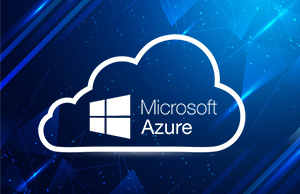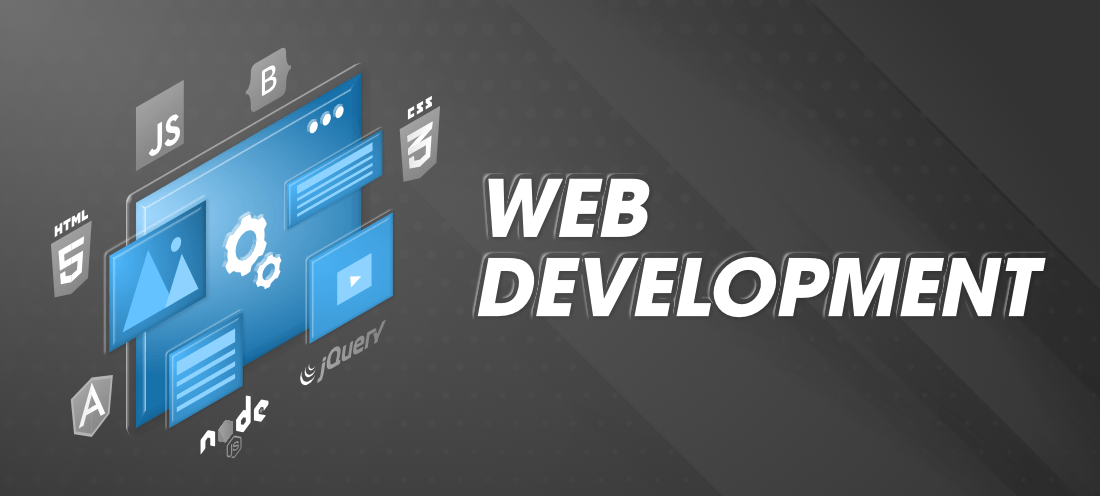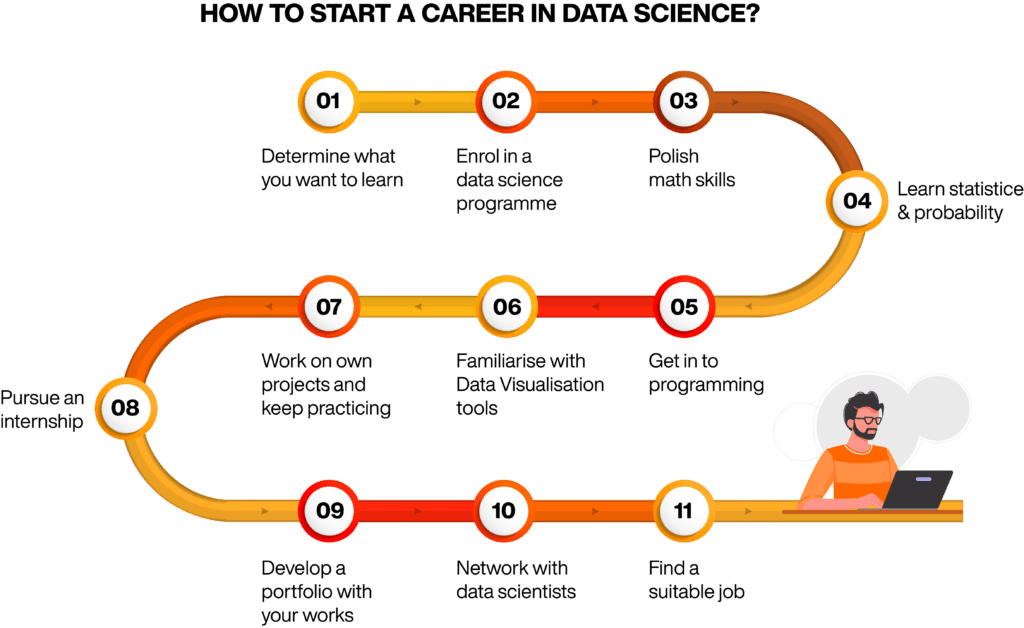The future of data science is both exciting and transformative, driven by rapid advancements in technology, increasing data volumes, and evolving business needs. Here’s a comprehensive look at what the future holds for data science and the trends shaping its trajectory.
1. Integration with Artificial Intelligence and Machine Learning
Advanced AI and ML Models
The integration of data science with artificial intelligence (AI) and machine learning (ML) is set to redefine the landscape. Future developments will likely focus on creating more advanced and sophisticated ML models that can learn and adapt more efficiently. This integration will enhance predictive analytics, automate decision-making, and drive innovations in various fields.
AI-Powered Data Insights
AI will increasingly play a role in automating data analysis and providing deeper insights. AI-driven tools will be capable of uncovering complex patterns and trends in data that were previously challenging to identify, making data analysis more efficient and actionable.
2. Increased Focus on Data Privacy and Ethics
Data Privacy Regulations
With the growing concern over data privacy, future developments in data science will place a greater emphasis on data protection and compliance with regulations such as GDPR (General Data Protection Regulation) and CCPA (California Consumer Privacy Act). Data scientists will need to ensure that data handling practices adhere to these regulations while still deriving valuable insights.
Ethical Data Use
Ethical considerations in data science will become more prominent. Future data scientists will need to address issues related to bias in data and algorithms, ensuring that their models are fair and unbiased. Ethical practices will be essential for maintaining trust and integrity in data-driven decision-making.
3. Enhanced Data Visualization and Interpretation
Interactive Data Visualization
The future of data science will see advancements in data visualization tools and techniques. Interactive and immersive visualizations, such as those using augmented reality (AR) and virtual reality (VR), will provide users with more intuitive and engaging ways to explore and interpret data.
Real-Time Data Analysis
As technology advances, the ability to analyze data in real-time will become more prevalent. Future data science solutions will focus on processing and visualizing data as it is generated, allowing for immediate insights and quicker decision-making.
4. Growth of Edge Computing
Data Processing at the Edge
With the rise of the Internet of Things (IoT) and connected devices, edge computing will become increasingly important. Data science will expand to include processing data at the edge of networks, closer to where it is generated. This will reduce latency, enhance real-time analysis, and improve the efficiency of data handling.
Decentralized Data Analysis
Edge computing will enable decentralized data analysis, allowing for more localized and efficient processing of data. This approach will be particularly useful for applications in remote areas or where centralized data processing is impractical.
5. Evolution of Data Science Tools and Technologies
Automation and Augmented Analytics
The future will see the rise of automated analytics and augmented analytics tools that leverage AI to automate routine tasks and provide advanced insights. These tools will streamline the data analysis process, making it more accessible and less reliant on manual intervention.
Integration with Cloud Computing
Cloud computing will continue to play a crucial role in data science, providing scalable and flexible solutions for data storage, processing, and analysis. Future developments will focus on enhancing cloud-based data science platforms to support more complex and large-scale data operations.
6. Interdisciplinary Collaboration
Cross-Disciplinary Applications
The future of data science will involve increased collaboration across various disciplines. Data scientists will work closely with experts in fields such as healthcare, finance, and engineering to develop tailored solutions and drive innovation. Interdisciplinary approaches will lead to more holistic and impactful applications of data science.
Enhanced Communication Skills
As data science becomes more integral to decision-making processes, data scientists will need to develop strong communication skills. The ability to convey complex data insights to non-technical stakeholders will be essential for driving actionable outcomes and fostering data-driven cultures within organizations.
7. Education and Skill Development
Evolving Educational Programs
Educational programs in data science will continue to evolve, incorporating new technologies and methodologies. Future programs will focus on providing students with hands-on experience and practical skills to prepare them for the changing landscape of data science.
Continuous Learning
Given the rapid advancements in technology, continuous learning will be crucial for data scientists. Staying updated with the latest tools, techniques, and industry trends will be essential for maintaining relevance and expertise in the field.
Conclusion
The future of data science is set to be dynamic and transformative, driven by advancements in AI, machine learning, and edge computing. As data science continues to evolve, it will play an increasingly central role in decision-making, innovation, and problem-solving across various industries. Embracing emerging technologies, addressing ethical considerations, and fostering interdisciplinary collaboration will be key to harnessing the full potential of data science. For professionals and organizations alike, staying ahead in this rapidly evolving field will require continuous learning and adaptation to new trends and technologies.
























